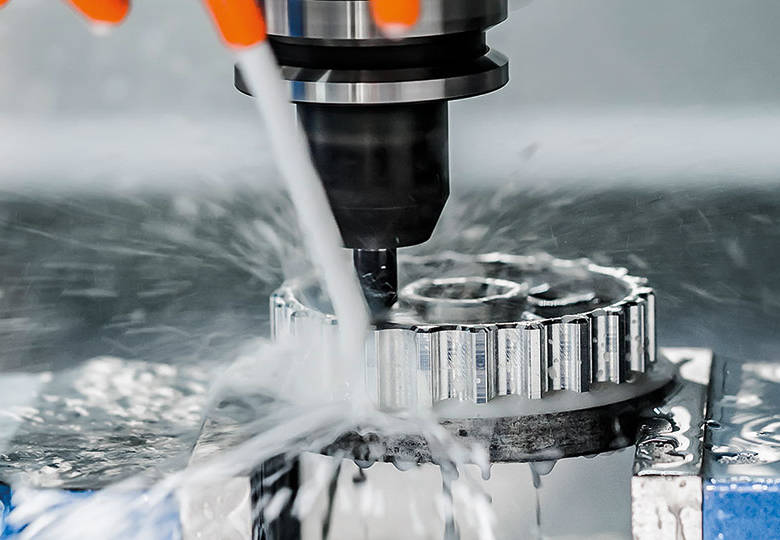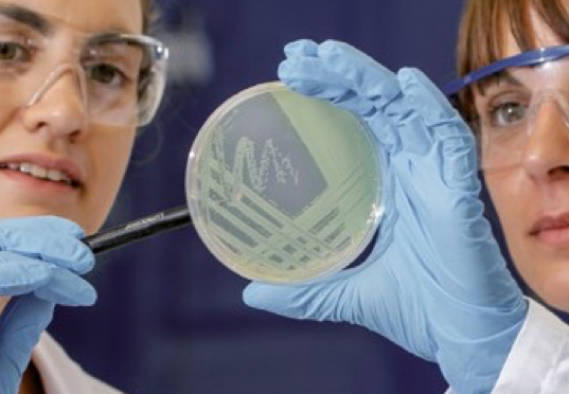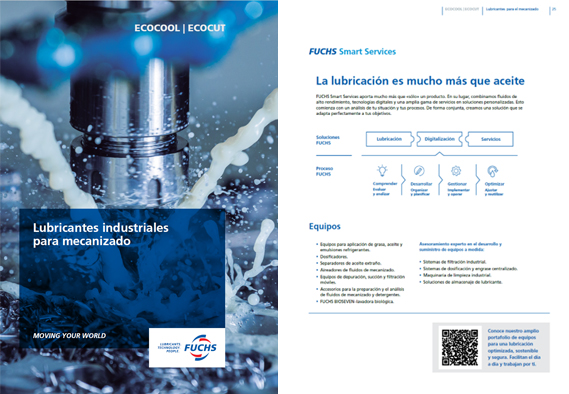GPP In-Process Product Management

The In-Process Product Management (GPP®) laboratory is part of after-sales service at FUCHS Spain, where samples of in-service products are analysed. This analysis is important for preventing potential failures, maintaining the service life of the fluid and detecting anomalies in the fluid and associated equipment.
The products analysed include those intended for machining, whether oils or water-soluble fluids.
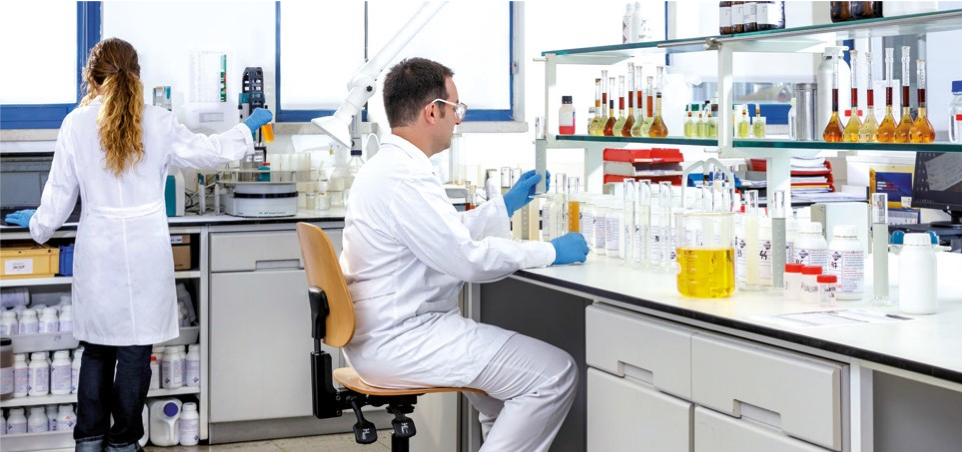
CUTTING OIL: ECOCUT
Appearance: Examining the sample allows us to anticipate whether there may be anomalies: presence of solids or turbidity.
Water content: The oils must not contain water, so the set limits are very low: 500 or 1000 parts per million (ppm) depending on the type of product.
Acidity index: Determines the degree of deterioration or oxidation of the product in process.
Viscosity: This is one of the key parameters that allow us to identify any possible contamination by other oils of different viscosity.
Solids: Filtering the sample to a certain size
allows us to evaluate the amount of particles present in the sample and to assess whether the filtration systems are working properly.
WATER-SOLUBLE FLUID: ECOCOOL
This type of product requires special control and in-process monitoring, since, in addition to working in a diluted form, the properties of the supply water and the possibility of microbiological growth in this type of fluid must be taken into account.
Appearance and stability: Test that facilitates rapid observation of the appearance of the sample and its development over time. The sample is placed in a glass test tube after being homogenised, and the test allows the presence of foreign oils to be detected and the stability of the emulsion to be checked.
pH: This is a particularly important parameter, as it provides information on the robustness of the fluid. A pH below the established limit indicates the presence of microorganisms or acid contamination.
Bacteria and fungi/yeast kit: The presence of water encourages the growth of microorganisms. Bacteria, fungi or yeasts must be identified quantitatively, as the corrective treatment is different in each case.
Corrosion (IP-287): Determines, by means of a standardised IP-287 test, the degree of corrosion presented by the sample. There can be several causes of corrosion: high presence of bacteria, decrease in pH, high level of chlorides or low concentrations.
Conductivity, chlorides and hardness: These parameters refer to the quality of the water used to make the emulsions, as they directly affect the stability of the emulsion and corrosion.
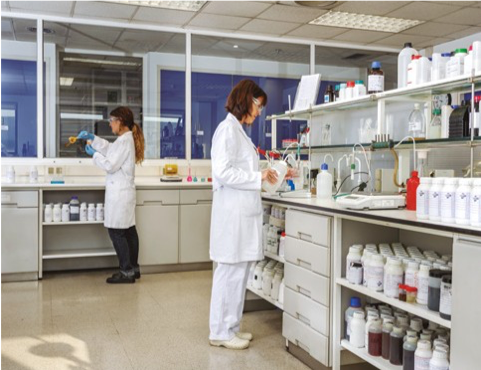
Concentration: Maintaining concentration within the recommended range is of vital importance for the proper performance of the machining fluid.
There are basically three methods to determine concentration.
- Alkalinity titration.
- Acid breaking, applicable to products that have an oil part in their composition and form an emulsion.
- The refractometry method, which allows a concentration value to be obtained quickly and easily.
Other analyses
The GPP® laboratory also analyses other parameters that allow us to know the properties of the in-process oil and which are carried out according to the application and the nature of the product:
- Filtration of solid particles at a certain size. § Infrared spectra.
- Lubrication tests.
- Foam.
- Detergency (surface tension).
Once all the parameters have been analysed, the GPP® laboratory draws up a report which is given to the customer, recommending actions to be taken or reporting that the sample has the right properties.
In parallel to these reports, the Spanish subsidiary of FUCHS also keeps a record of all the samples analysed in order to observe trends over time and to provide better service to our customers.

